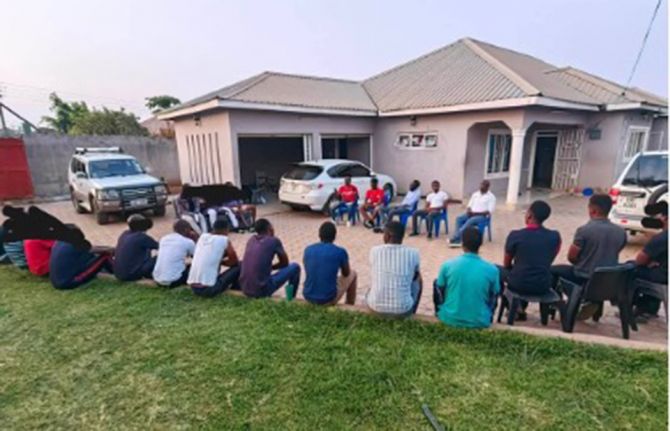
Feature Story
United States Congressional Staff first-hand view of Zambia’s AIDS response
09 March 2012
09 March 2012 09 March 2012
The delegation of United States Congressional staff members visited the ASAZA project, one of the main programmes in the country responding to gender violence and child sexual abuse.
A delegation of nine United States Congressional staff members travelled to Zambia from 18 – 24 February. The aim of the visit was to have a first-hand understanding of the progress made and challenges remaining in scaling up HIV treatment, care and prevention programs in one of the most heavily impacted countries Sub-Saharan Africa.
The trip, organized by UNAIDS in collaboration with the Office of the United States Global AIDS Coordinator and the American Embassy in Lusaka, provided Congressional staff with an overview about how the United States government and the United Nations system are working with the Government of Zambia to support the country’s AIDS response.
“What I have seen this week only reinforces my belief that the United States has a critical role to play in helping local communities address the many profound challenges posed by AIDS,” said Diana Ohlbaum, Democratic Congressional staffer co-leading the visit. “It’s inspiring to see how much of an impact what we do in Washington has here on the ground in Zambia,” she added.
What I have seen this week only reinforces my belief that the United States has a critical role to play in helping local communities address the many profound challenges posed by AIDS
Diana Ohlbaum, Democratic Congressional staffer
Zambia has an estimated HIV prevalence of 13.5% with more than a million people living with HIV. Each year there are an estimated 82 000 new HIV infections in the country. While there has been important progress in scaling up access to antiretroviral treatment and in reducing new infections among children, the delegation saw a need for greater efforts to address the structural causes of vulnerability to HIV such as gender disparities.
The delegation visited a variety of programs in Lusaka, Monze and Livingstone—including programs focused towards the elimination of new infections among children, male circumcision and access to HIV treatment. The group also learned about the opportunities to integrate HIV programs and other primary health services, including the recently launched Pink Ribbon-Red Ribbon Initiative which seeks to better integrate HIV and cervical cancer programs.
Gender violence and child abuse
The delegation visited one of the main programmes in the country responding to gender violence and child sexual abuse. The programme, hosted at the Mazabuka District Hospital outside Lusaka, has been supported by both United States and United Nations funding and is designed to mitigate the impacts of sexual and gender-based violence.

ASAZA also supports a men’s network which works through traditional leaders in both urban and rural settings to change behavior and set new social norms among men.
Known as the ASAZA program, short for “A Safer Zambia”, the project supports survivors of sexual and gender-based violence through integrated care and long-term assistance and by working with surrounding communities to make it less common. Some of the support provided includes the collection and preservation of forensic evidence, prosecution of perpetrators, provision of medical treatment and facilitation of links to safer houses and survivor support groups.
ASAZA also supports a men’s network which works through traditional leaders in both urban and rural settings to change behavior and set new social norms among men.
“We know that gender-based violence and abuse are contributors to the AIDS epidemic in many countries,” said Lisa Carty, Director of the UNAIDS office in Washington, DC. “To see the model developed at ASAZA, particularly the involvement of the men’s network, and to hear the courageous stories of gender-based violence survivors is proof that communities can take action to combat gender violence. We all need to support this type of innovative approach,” she added.



